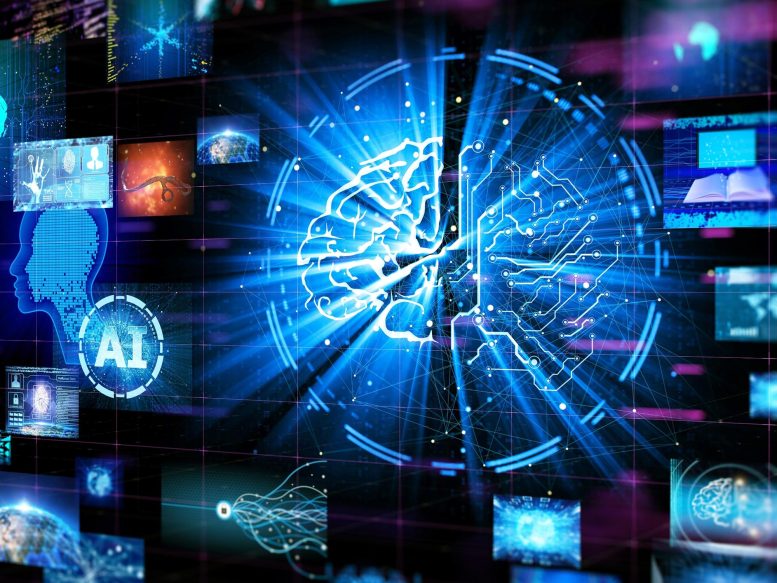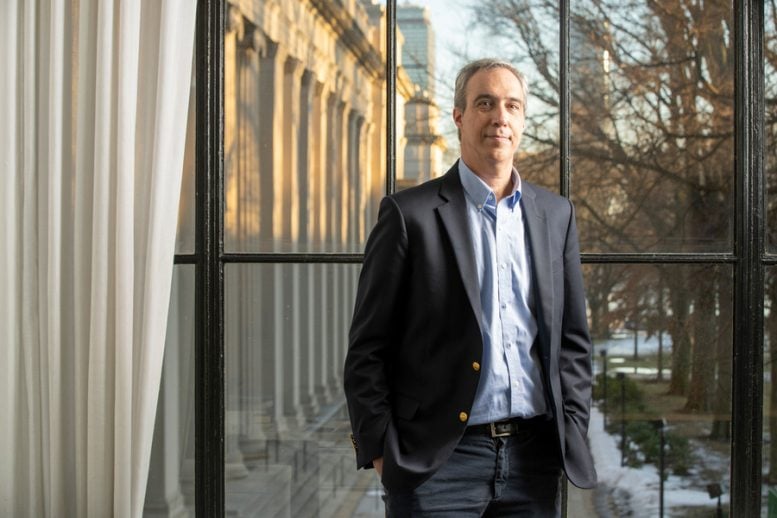
For the
“Advances in AI are going to happen, but the destination that we get to with those advances is up to us, and it is far from certain,” says Huttenlocher, who is also the Henry Ellis Warren Professor in the Department of Electrical Engineering and Computer Science.
Along with former Google CEO Eric Schmidt and elder statesman Henry Kissinger, Huttenlocher recently explored some of the quandaries posed by the rise of AI, in the book, “The Age of AI: And Our Human Future.” For Huttenlocher and his co-authors, “Our belief is that, to get there, we need much more informed dialogue and much more multilateral dialogue. Our hope is that the book will get people interested in doing that from a broad range of places,” he says.
Now, with nearly two and a half years as the college dean, Huttenlocher doesn’t just talk the talk when it comes to interdisciplinarity. He is leading the college as it incorporates computer science into all fields of study at MIT while teaching students to use formidable tools like artificial intelligence ethically and responsibly.
That mission is being accomplished, in part, through two campus-wide initiatives that Huttenlocher is especially excited about: the Common Ground for Computing Education and Social and Ethical Responsibilities of Computing (SERC). SERC is complemented by numerous research and scholarly activities, such as AI for Health Care Equity and the Research Initiative for Combatting Systemic Racism. The Common Ground supports the development of cross-disciplinary courses that integrate computing into other fields of study, while the SERC initiative provides tools that help researchers, educators, and students understand how to conceptualize issues about the impacts of computing early in the research process.
“When I was a grad student, you worked on computer vision assuming that it was going to be a research problem for the rest of your lifetime,” he says. “Now, research problems have practical applications almost overnight in computing-related disciplines. The social impacts and ethical implications around computing are things that need to be considered from the very beginning, not after the fact.”

Dan Huttenlocher, inaugural dean of the MIT Schwarzman College of Computing, has been focused on bridging gaps between disciplines since he first became interested in the nascent field of artificial intelligence as a teenager. Credit: M. Scot Brauer
Budding interest in a nascent field
A deep thinker from an early age, Huttenlocher began pondering questions at the intersection of human intelligence and computing when he was a teenager.
With a mind for math, the Chicago native learned how to program before he entered high school, which was a rare thing in the 1970s. His parents, both academics who studied aspects of the human mind, influenced the path he would follow. His father was a neurologist at the
I am sorting out relevant information about gate io recently, and I saw your article, and your creative ideas are of great help to me. However, I have doubts about some creative issues, can you answer them for me? I will continue to pay attention to your reply. Thanks.
I am a student of BAK College. The recent paper competition gave me a lot of headaches, and I checked a lot of information. Finally, after reading your article, it suddenly dawned on me that I can still have such an idea. grateful. But I still have some questions, hope you can help me.